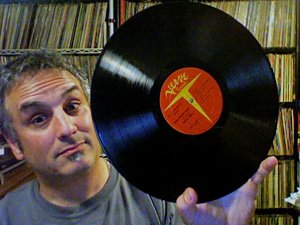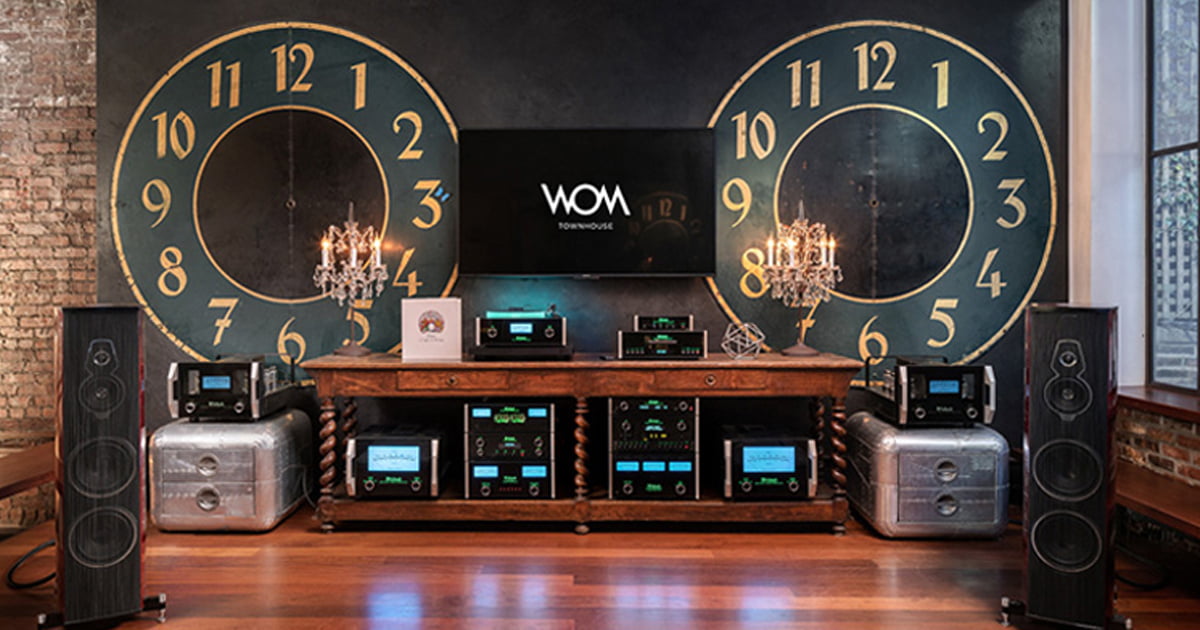It’s the time of year for saving money!
It’s almost unfair to the artists involved in the studio-assemblage dubbed The New Basement Tapes to call this a Bob Dylan record. Sure, the recordings they made were inspired by a new batch of previously unseen, unpublished Dylan lyrics culled from those same sessions that inspired the legendary Basement Tapes recordings in 1967. But the music on this album is written by the performers here, including Elvis Costello, Jim James (My Morning Jacket), Marcus Mumford (Mumford & Sons), Rhiannon Giddens (Carolina Chocolate Drops) and Taylor Goldsmith (Dawes). It was all produced in ever-appropriate Americana-roots flavor by Dylan’s Rolling Thunder band alumnus and now super-producer, T-Bone Burnett.
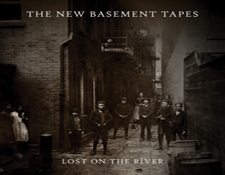 But really, that is where the Dylan connection pretty much begins and ends here. Yet somehow it all holds together as a grand musical statement.
But really, that is where the Dylan connection pretty much begins and ends here. Yet somehow it all holds together as a grand musical statement.
And what we’re left with is a really good new album by some great musicians.
OK, this is more than just “a good album.” This is fine, fine stuff, especially if you like your music semi-stripped-down to the song’s essence, played passionately by live musicians in the same room without any synthesizers or samplers used in the vocabulary of the sessions.
I hear only one instance where a song here sounds a tad Dylan-esque (at least vocally): “Down on The Bottom” is co-written by Jim James, who sings the album opening tune almost eerily in that back-of-the-throat style akin to what Dylan was experimenting with around the time of the original Basement Tapes and his subsequent releases like Nashville Skyline and even a bit into New Morning. So it’s no surprise that track leads off the album.
“Kansas City” is a recurring theme in this batch of lyrics and the Marcus Mumford / Taylor Goldsmith’s tune of the same name sounds a bit more musically inspired by Los Lobos than Dylan. Goldsmith’s “Liberty Street” (which also takes place in Kansas City) reads like a lost Randy Newman epic, replete with a glorious gospel-inspired choir.
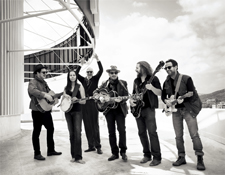 Elvis Costello’s offerings are among the most compelling here. Costello wisely avoids trying to mimic overt Dylan-isms. My fave of his tracks is “Six Months In Kansas City (Liberty Street),” which flips between rock and waltz grooves to deliver the testifying lyrics about one man’s seeming end days as the heavens seem to open up in salvation.
Elvis Costello’s offerings are among the most compelling here. Costello wisely avoids trying to mimic overt Dylan-isms. My fave of his tracks is “Six Months In Kansas City (Liberty Street),” which flips between rock and waltz grooves to deliver the testifying lyrics about one man’s seeming end days as the heavens seem to open up in salvation.
Possibly the closest Elvis gets to a Dylan moment is on his very un-Dylan sounding “Married To My Hack” (which feels like an outtake from his 1989 Spike album); on that song, Riannon Giddens chimes in with faux-jazz scat lines which recall the comic side-one-closer to Dylan’s New Morning album, “If Dogs Run Free”).
One of Elvis’s finest vocal moments on this album is “Lost on The River #12,” which is a classic bit of Costello-flavored Americana (which he has been doing brilliantly since around the time of his King of America album in the mid-’80s — not coincidentally also produced by T-Bone Burnett). This track has a fabulously heartfelt vocal that really delivers the ache of the lyric “I got lost on the river, but I got found…”
Riahnnon Giddens and Marcus Mumford offer a more stripped-down and equally lovely — albeit different — interpretation of the lyric on “Lost on The River #20.” Close your eyes and this could have been performed at a church or temple somewhere, not at Capitol Records’ legendary studio in Hollywood.
Anyhow, I think you get the idea this is a pretty cool recording.
The 24-bit/96-kilohertz download version from HDTracks delivers a nice fat Basement-Tapes-esque soundstage that complements T-Bone Burnett’s lushly subtle (subtly lush?) production sweeps. Listening to opening track “Down On The Bottom,” there is a bit more warmth on the high-res version compared to the CD, which shows some inevitable roughness around the digital edges of the format (notable on some vocal bits and some instrumentation peaks).
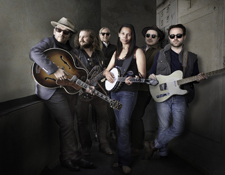 The quirky, percussion-driven “Married to My Hack” sounds bigger overall on the HDTracks download, with more room presence on the drums and much more apparent amplifier tone from Elvis Costello’s guitar coming through my speakers. These details are really important on tracks like “Six Months In Kansas City (Liberty Street),” where Costello’s guitar tone takes up a big sonic space in the song. That sort of detailing is a huge part of the beauty of T-Bone Burnett’s roots productions, so I encourage you to listen actively on this release. The gospel-tinged vocals on that song also jump out on the HDTracks version.
The quirky, percussion-driven “Married to My Hack” sounds bigger overall on the HDTracks download, with more room presence on the drums and much more apparent amplifier tone from Elvis Costello’s guitar coming through my speakers. These details are really important on tracks like “Six Months In Kansas City (Liberty Street),” where Costello’s guitar tone takes up a big sonic space in the song. That sort of detailing is a huge part of the beauty of T-Bone Burnett’s roots productions, so I encourage you to listen actively on this release. The gospel-tinged vocals on that song also jump out on the HDTracks version.
Even on a quiet, acoustic guitar-driven piece like the final song, “Lost On The River #20,” you can hear a difference between the CD and the high-res download. On the CD you hear a nice acoustic guitar, no doubt. On the high-res download, however, I hear the wood of the guitars resonating, the swipe of the guitarists fingers across the strings and the air around the instruments.
It’s really quite lovely.
And that is how these New Basement Tapes roll.
So going back to my opening comment, I’ll swing around to ask again: Is The New Basement Tapes a new Dylan album? Kinda… sorta… maybe… not really. Are The New Basement Tapes a new band, a “supergroup” if you will? That stands to be seen, and will probably depend on how well the album does and if we get another release of other songs written during the sessions. (I really, really DO hope they tour!!).
Does any of this matter in the grand scheme of things? Nah, not really one bit.
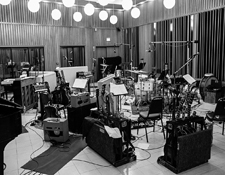 The thing that is important to take away about The New Basement Tapes is this is a real good record of well-written, melodic, acoustic-flavored roots rock’n’folk tunes. I’ll put it this way: iI you liked the feel of Robert Plant’s brilliant album with Alison Krauss (Raising Sand), you might well like this album. If you like the Fleet Foxes albums, you might like this. If you liked Costello’s King of America and later acoustic tinged albums like The Deliveryman, National Ransom and Secret, Profane & Sugarcane, you might like this album.
The thing that is important to take away about The New Basement Tapes is this is a real good record of well-written, melodic, acoustic-flavored roots rock’n’folk tunes. I’ll put it this way: iI you liked the feel of Robert Plant’s brilliant album with Alison Krauss (Raising Sand), you might well like this album. If you like the Fleet Foxes albums, you might like this. If you liked Costello’s King of America and later acoustic tinged albums like The Deliveryman, National Ransom and Secret, Profane & Sugarcane, you might like this album.
Good stuff. Let’s hear more!
One last thing: In case you, Dear Readers, are wondering about the title of this article and what it is referring to, I do encourage you to do a search on the web for “Bob Dylan, Great White Wonder” and you’ll learn about what I am referencing there.
Pieces to the puzzle.
